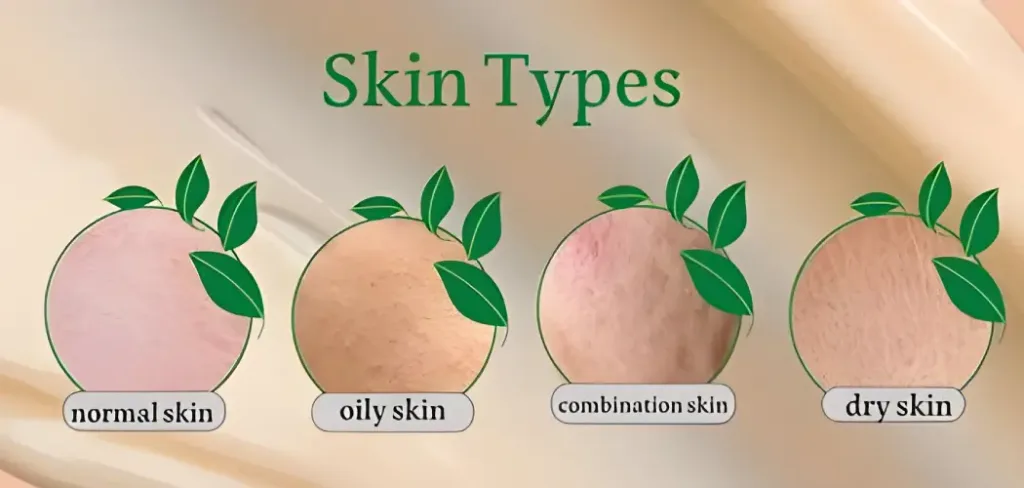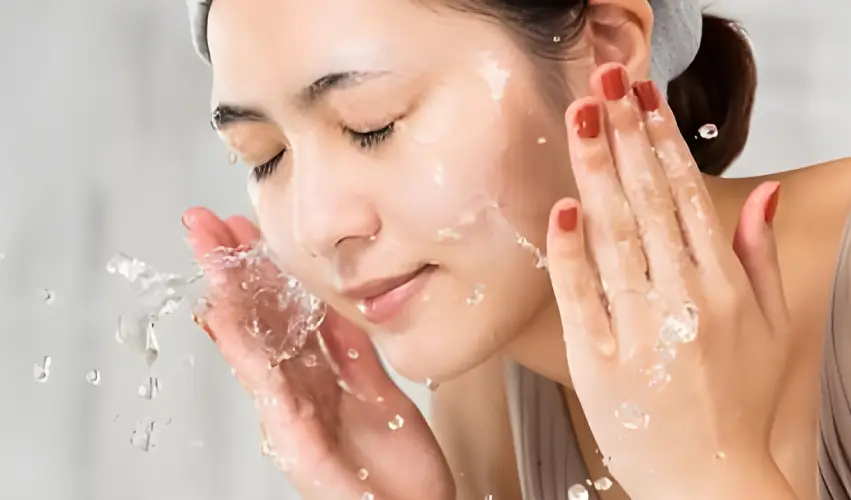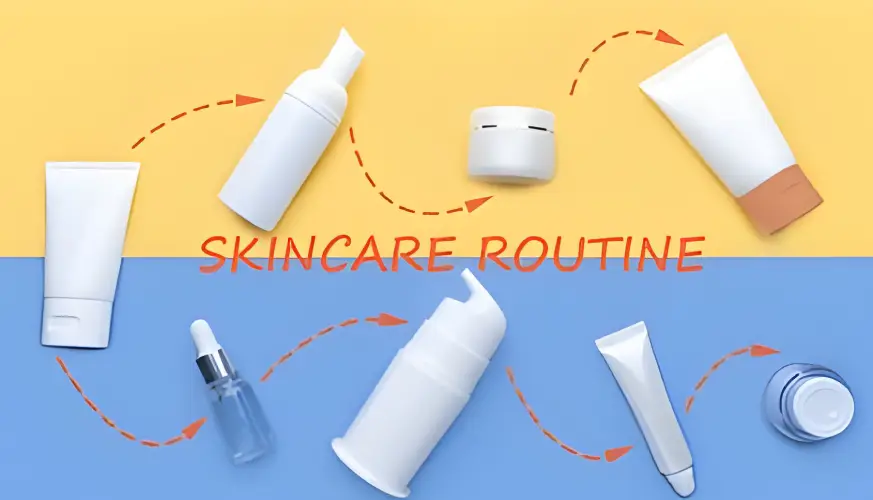Skincare as Makeup: How to Achieve a Flawless Complexion Naturally
Are you tired of applying layers of makeup to achieve a flawless complexion? It’s time to let your skincare routine do the heavy lifting! In this blog post, we’ll show you how to use natural skincare products to create a radiant, glowing look that will have everyone asking for your secret. Say goodbye to the foundation and hello to healthy, beautiful skin!

Introduction to Skincare as Makeup
In today’s world, where makeup trends are constantly changing and new products are being introduced, it’s easy to get caught up in the hype and forget about the basics—skincare. Many people think of makeup as a quick fix to achieve flawless skin, but what if we told you that incorporating skincare into your makeup routine can actually give you a naturally flawless complexion? That’s right; by using skincare as makeup, besides enhancing your natural beauty, you will nourish your skin as well.
Skincare as makeup uses skincare products such as serums, oils, and moisturizers in place of traditional makeup products like foundation and concealer. This allows for a more natural look while still providing coverage and enhancing the overall appearance of the skin. The concept may seem daunting at first, especially for those who have relied on heavy foundations and concealers for years. But once you understand the benefits of using skincare as makeup, there will be no turning back.
The main advantage of incorporating skincare into your makeup routine is that it focuses on treating the root cause of imperfections rather than just covering them up. Traditional makeup products often contain harsh chemicals that can clog pores, cause breakouts, or irritate sensitive skin. Alternatively, skincare products contain natural ingredients that nourish and improve your skin’s health.
Another benefit is that skincare products tend to have lighter formulations compared to traditional makeup. This not only gives you a more natural look but also prevents clogging pores, which can lead to acne breakouts.
Using skincare as makeup also means simplifying your beauty routine. Instead of layering multiple heavy products on your face every day, you can use just a few key skincare items to achieve a flawless complexion. This saves time and money while still achieving great results. Moreover, skin care products, such as makeup, are suitable for all skin types, making them a more personalized approach to achieving flawless skin.
Benefits of Using Skincare as Makeup
In the following sections of this article, we will explore how to incorporate skincare into your makeup routine and the different products and techniques you can use to achieve a naturally flawless complexion.
Incorporating skincare into your makeup routine has numerous benefits. Not only does it provide a more natural and healthy option for achieving a flawless complexion, but it also offers long-term improvements to the overall health of your skin.
- Nourishes and Protects the Skin:
Skincare products nourish and protect your skin while still giving you a flawless appearance, unlike traditional makeup products that contain harmful chemicals. In addition to providing hydration and protection from environmental stressors, skincare products like moisturizers, serums, and sunscreens also act as a barrier between your skin and makeup.
- Reduces the Risk of Breakouts:
As mentioned earlier, traditional makeup products often contain harsh ingredients that can irritate or clog the pores, leading to breakouts. Using skincare instead of makeup can lower the risk as skincare products have gentle yet effective ingredients for all skin types. Additionally, many skincare brands offer non-comedogenic (non-pore-clogging) options designed specifically for acne-prone or sensitive skin types.
- Multi-functional Products:
Over the years, skincare products have evolved to offer multi-functional benefits beyond their primary purpose. For example, tinted moisturizers act as both a moisturizer and foundation in one product, providing hydration while evening out your skin tone. Similarly, BB creams combine the benefits of moisturizer, sunscreen, primer, and foundation in one formula.
- Targets Specific Skin Concerns:
It is also possible to target specific skin concerns with skincare or makeup, such as signs of aging or hyperpigmentation. Many skincare products contain anti-aging ingredients like retinol or vitamin C, which help improve fine lines, wrinkles, and dark spots over time while providing coverage for immediate results.
- Long-Term Benefits:
One of the most significant benefits of incorporating skincare into your makeup routine is the long-term impact it has on your skin. By using products that nourish and protect your skin, you are also promoting its overall health and radiance. With consistent use, you may start to see improvements in concerns like texture, elasticity, and brightness.
Using skincare as makeup not only provides a more natural option for achieving flawless skin but also offers numerous benefits for the long-term health of your skin. So why settle for traditional makeup when you can have the best of both worlds with skincare as makeup?

Understanding Your Skin Type
Knowing your skin type is crucial before diving into the world of skincare and makeup. The best products for your skin type depend on your skin type. Depending on the individual, something other than what works may work for another. Skin types include normal, dry, oily, combination, and sensitive. Here are some tips to help you determine your skin type:
- Oil production is a major factor in determining your skin type. If you have normal skin, your face will have an even balance of oil and moisture. Dry skin produces less oil and feels tight/laky. Oily skin produces more sebum (oil) than is necessary, resulting in a shiny appearance and potential breakouts. Faces with combination skin have both dry and oily areas.
- Moisture levels: Pay attention to how well your skin retains moisture throughout the day. Normal skin should stay hydrated without feeling greasy or dry. Dry skin’s moisture retention is impaired, resulting in tightness or dullness. Oily skin often feels greasy but still lacks hydration.
- Sensitivity: Some people may have sensitive or reactive skin that easily gets irritated by certain products or environmental factors.
- Pores: The size of your pores can also be an indicator of your skin type. Normal pores are barely visible and don’t get clogged easily; however, those with oily or combination skin may have larger pores that are prone to congestion.
- Genetics: Although not always the case, genetics can play a role in determining our overall complexion and predisposition to certain conditions, such as acne or rosacea.
Once you’ve taken these factors into account, you can determine which category your skin falls under:
- Normal skin is considered the ideal type because it is well-balanced and doesn’t have any major issues.
- Dry Skin: This type often feels tight, rough, or flaky and may have a dull appearance. Harsh weather conditions or certain skincare products can aggravate it.
- Oily Skin: Individuals with oily skin may often encounter frequent breakouts and a shiny T-zone (forehead, nose, and chin).
- Combination Skin: As the name suggests, this type is a combination of dry and oily areas on the face. The T-zone usually has more oil, while other areas may feel dry.
- Sensitive Skin: This type can be challenging to identify as it can exhibit symptoms of other skin types. Certain products may cause redness, irritation, or reactions in people with sensitive skin.
By identifying your skin’s unique characteristics, you can choose products that will nourish and enhance your complexion naturally.
Essential Skincare Steps for a Flawless Complexion
Many people strive for a flawless complexion when it comes to their appearance. While makeup can help cover imperfections, true flawless skin starts from within and requires a good skincare routine. Natural steps for achieving a flawless complexion will be discussed in this section.
- Cleansing: Any skincare routine should begin with cleansing. This step removes dirt, oil, and impurities from your skin’s surface, allowing other products to penetrate deeper into the skin. Skin type-appropriate cleanser should be used twice a day on your skin.
- Exfoliation: It is important not to over-exfoliate, as it can irritate the skin and cause damage. Exfoliating reveals the smoothest skin, unclogs pores, and prevents breakouts. Normal or combination skin types can exfoliate once or twice a week, while sensitive or dry skin may benefit from less frequent exfoliation.
- Toning: Toning is often overlooked in skincare routines, but it can make all the difference in achieving a flawless complexion. Toners help to restore your skin’s pH balance after cleansing and exfoliating. They also prepare your skin to absorb serums and moisturizers more effectively.
- Serum: In serums, active ingredients target specific concerns, such as wrinkles, dark spots, or acne-prone areas on the face. These concentrated formulas penetrate deep into the layers of the skin to deliver powerful benefits effectively.
- Moisturizing: In addition to maintaining hydrated and healthy skin, moisturizers act as a barrier against external factors like pollution and UV rays that may damage our skin. After cleansing and toning, moisturize twice a day.
- Sun Protection: UV rays can cause skin cancer, in addition to premature aging and dark spots. For a flawless complexion, Ensure that your daily skincare routine includes broad-spectrum sunscreen with a minimum SPF of 30. Apply it last before applying makeup or going out in the sun.
Achieving a flawless complexion naturally requires consistency and dedication to a good skincare routine that includes cleansing, exfoliating, toning, using serums, moisturizing, and protecting your skin from the sun’s damaging rays.

Cleansing
Cleansing is the first and most important step in any skincare routine. The goal is to remove all traces of makeup, dirt, and impurities from your face to reveal a clean, fresh canvas for your skincare products to work on.
One key benefit of cleansing is that it helps to unclog pores. Throughout the day, our skin accumulates oil, sweat, and environmental pollutants, which can clog our pores and lead to breakouts. By thoroughly cleansing our skin, we are able to remove these impurities and prevent pore congestion.
Another important benefit of cleansing is that it helps with anti-aging. As we age, our skin’s natural ability to shed dead cells slows down, causing them to accumulate on the surface. This can result in a dull complexion and fine lines. However, regular cleansing helps to remove these dead skin cells, revealing brighter and smoother skin.
Various options are available when it comes to choosing a cleanser, such as foaming cleansers, cream cleansers, or oil-based cleansers. It’s also essential to note that over-cleaning can do more harm than good. The effectiveness of double-cleansing in removing stubborn makeup and deeply cleansing pores has also made it increasingly popular in recent years.
Incorporating cleansing into your skincare routine is crucial for achieving a flawless complexion. Remember, the key is to find the right cleanser for your skin type and be consistent with cleansing twice a day. Your skin will thank you for it!
Exfoliating
A fateful step in any skincare regimen is exfoliating, particularly when it comes to achieving a flawless complexion. By exfoliating your skin, dead skin cells are removed, revealing a brighter and smoother complexion beneath. Exfoliation improves your skin’s appearance and texture, as well as its ability to absorb skincare products. Exfoliation can be physical or chemical. Physical exfoliation involves using a scrub or tool to remove dead skin cells through friction. Alternatively, chemical exfoliation uses acids such as AHA (alpha-hydroxy acid) or BHA (beta-hydroxy acid) to dissolve the bonds between dead skin cells.
When it comes to accomplishing a flawless complexion naturally, chemical exfoliators are usually recommended. They tend to be gentler on the skin compared to physical scrubs. Chemical exfoliants also have the added benefit of being able to penetrate deeper into the pores, targeting clogged pores and promoting cell turnover.
Oranges and lemons contain AHAs, which are popular natural exfoliants. These acids work by breaking down the glue-like substance that holds dead skin cells together, resulting in smoother and more radiant-looking skin. In contrast, BHA penetrates deeply into the pores and is oil-soluble, making it an excellent choice for acne-prone or oily skin types.
It’s essential to note that not all chemical exfoliants are suitable for everyone. If you’re new to chemical exfoliation or have sensitive skin, it’s best to start with lower concentrations of AHA or BHA. Also, always remember to patch test before incorporating any new product into your routine.
Another option for natural exfoliation is enzyme-based peels made from ingredients like papaya or pineapple enzymes. In order to achieve gentle yet effective exfoliation, these enzymes break down the protein bonds that hold dead skin cells together.
Apart from chemical and enzyme-based exfoliants, there are also physical exfoliators made from natural ingredients like sugar, salt, or ground nuts. It’s essential to be mindful when using these types of scrubs, as they can cause micro-tears in the skin if used too aggressively. Opt for a gentle scrub and use light pressure when massaging it onto your skin.
Regular exfoliation is crucial for achieving a flawless complexion naturally. Whether you choose to use chemical or physical exfoliants, make sure to incorporate them into your skincare routine 1-2 times a week for the best results. Remember to always follow up with hydrating and nourishing products afterward to keep your skin healthy and glowing.
Toning
After cleansing, toning helps remove any remaining impurities and balance the skin’s pH level.Toners also help shrink pores, tighten skin, and provide hydration for a healthy and radiant glow. The best toners contain gentle ingredients like rose water, witch hazel, or green tea extracts that can nourish and soothe the skin while effectively removing impurities. Look for natural ingredients like rose water, witch hazel, or green tea extracts that can nourish and soothe the skin while effectively removing any impurities.
One way to incorporate toning into your daily skincare routine is to use a cotton pad or ball soaked in your chosen toner and gently sweep it across your face. Start from the center of your face and move outward in an upward motion. This technique not only removes dirt and residue but also stimulates blood circulation in the face, giving you a natural, rosy glow.
Another popular method of toning is using facial mists throughout the day. Facial mists are convenient as they can be used anytime and anywhere, providing an instant boost of hydration for dry or tired skin. They are also great for setting up or refreshing your skin during long days. If you have oily or acne-prone skin, a toner with salicylic acid can help control excess oil production and prevent breakouts. They are lightweight and absorb quickly without leaving any residue.
If you prefer more natural alternatives, consider making your own DIY facial toner using ingredients like apple cider vinegar, cucumber, or aloe vera. These ingredients not only have toning properties but also contain antioxidants that can help improve skin texture and fight signs of aging.
Toning is an essential step in achieving a flawless complexion naturally. It removes impurities, achieves pH balance, and provides hydration for healthy and glowing skin. To achieve the best results, choose gentle, natural products that suit your skin type.
Moisturizing
Moisturizing is crucial to any skincare routine, and it becomes even more crucial when applying makeup. Skin that dries without enough water becomes flaky and dull, leading to uneven and cakey makeup. The right moisturizer can help you achieve a flawless complexion naturally.
Firstly, it’s important to understand that everyone’s skin is unique and may have different moisture needs. For example, if you have oily skin, choose lightweight gel or water-based moisturizers that won’t clog pores or add excess oil to your already oily complexion. On the other hand, if you have dry skin, look for thicker cream-based moisturizers that provide deep hydration.
When applying moisturizer before makeup, wait at least five minutes after cleansing your face. Moisturizing also creates a smooth base by filling in fine lines and imperfections on the skin’s surface.
Another important aspect of moisturizing is choosing products with natural ingredients. Harsh chemicals and synthetic fragrances can irritate the skin and cause breakouts or allergic reactions. Instead, opt for natural alternatives like hyaluronic acid, glycerin, shea butter, and coconut oil, which provide intense hydration without any harmful side effects.
In addition to daily moisturizing as part of your skincare routine, there are also some other tips you can follow to ensure your makeup stays flawless all day long. One trick is to mix a drop of facial oil with your foundation before applying it to your face; this helps create a dewy finish while keeping the skin hydrated throughout the day.
Furthermore,
By incorporating hydrating facial mists into your daily routine, you can restore moisture to your skin and maintain a refreshed appearance. Additionally, using a moisturizing primer before applying makeup can help create a seamless base for the foundation, extending its longevity. Moisturizing plays a vital role in achieving flawless skin with makeup by providing hydration and ensuring an even application that lasts all day. It’s essential to select products tailored to your skin type and opt for natural ingredients to promote overall skin health.

Incorporating Natural Ingredients in Your Skincare Routine
Popular choice for those looking to improve the health and appearance of their skin. As people become more aware of what they are putting on their bodies, there has been a trend towards using natural ingredients like argan oil in skincare products. This shift towards holistic approaches is driven by the desire for healthier and more effective solutions that can help us achieve beautiful, radiant skin.
Rosehip oil is light and comes from roses. It is packed with vitamins A and C, as well as essential fatty acids. Rosehip oil is another natural ingredient that has gained popularity recently. These nutrients help the skin become hydrated, dark spots fade, and fine lines and wrinkles are reduced. Furthermore, rosehip oil has anti-inflammatory properties that calm irritated skin and reduce redness.
If oily or acne-prone, try tea tree oil. With its powerful antibacterial properties, this essential oil can reduce excess sebum production and fight bacteria that cause acne breakouts. It also soothes inflamed breakouts and reduces redness.
Hyaluronic acid is another natural ingredient that has gained widespread recognition in the skincare world. Despite its name containing “acid,” this compound is actually a sugar molecule naturally produced by our bodies to retain moisture in our tissues. By incorporating hyaluronic acid into our skincare routine, we can replenish the moisture in our skin, plump up fine lines, and achieve a more youthful appearance. Unlike harsh chemical exfoliants, these natural options are gentler on the skin and do not cause irritation or inflammation.
Using natural ingredients in skincare is good for your skin and the environment. Choose products that use sustainably sourced natural ingredients to reduce your carbon footprint and promote ethical practices in the beauty industry. So why wait? Start incorporating these natural wonders into your skincare routine today for a healthier and more radiant complexion!
DIY Face Masks and Scrubs
DIY Face Masks and Scrubs: A Natural Approach to Glowing Skin
The appearance & health of your skin can be greatly enhanced by incorporating masks and scrubs into your skincare regimen in addition to a proper skincare routine. As well as removing dead skin cells, unclogging pores, and hydrating the skin, these treatments can also brighten dull complexions, reduce wrinkles, and improve overall texture.
Many store-bought masks and scrubs contain harsh chemicals that can irritate the skin or may not be suitable for all skin types. This is where DIY face masks and scrubs come in; they offer a natural approach to achieving a flawless complexion without any harmful ingredients.
Here are easy DIY face mask recipes with natural ingredients.
- Honey & Yogurt Mask: Honey and yogurt gently exfoliate and moisturize the skin. This mask consists of one tablespoon of raw honey and two tablespoons of yogurt. It is applied to clean skin and left on for 15-20 minutes before rinsing off with warm water. It is beneficial for sensitive or dry skin.
- Avocado & Oatmeal Mask: Avocado contains healthy fats that nourish the skin, while oatmeal acts as an excellent exfoliant. Mash half an avocado with cooked oatmeal (about three tablespoons) until well combined. Apply it to your face in circular motions and leave it on for 10–15 minutes before washing it off with water.
- Turmeric & Coconut Oil Mask: Turmeric reduces redness, while coconut oil provides deep hydration. To make this mask, mix 1 tsp turmeric with 1 tbsp coconut oil. Put it on your face for 10 minutes before washing it off with warm water. It is ideal for oily/acne-prone skin.
- For scrubs, here are some easy recipes for soft, smooth skin.
- Coffee & Sugar Scrub: Coffee grounds exfoliate, and caffeine boosts blood flow for glowing skin. Mix together ¼ cup of coffee grounds with ¼ cup of sugar and add enough coconut oil to create a paste-like consistency. Before rinsing, gently massage onto damp skin in circular motions.
- Brown Sugar & Honey Scrub: Brown sugar is gentle on the skin yet effective at removing dead cells, while honey provides hydration. Combine 1 tbsp brown sugar with 1 tbsp raw honey. Gently massage onto damp skin and leave it on for a few minutes before rinsing off.
Remember to always patch-test any new DIY products on a small area of your skin before applying them all.

Natural Oils for Healthy Glow
Many natural oils can help give your skin a healthy and radiant glow. These oils are not only nourishing for the skin but also provide numerous benefits, such as hydration, anti-aging properties, and protection against environmental damage.
Natural oils like argan oil are popular for achieving a healthy glow. This oil comes from argan tree kernels, a Moroccan tree native to the area. Besides being rich in vitamin E and fatty acids, argan oil also soothes redness and irritation on the skin due to its anti-inflammatory power.
A great option is rosehip seed oil, which is derived from rose bushes and has been used for centuries to improve skin health. In addition to hydrating your skin, rosehip seed oil contains vitamins A and C, which can brighten your skin, reduce dark spots, and fade scars.
Jojoba oil is good for oily skin. Despite its name, jojoba oil is a liquid wax that closely resembles our skin’s natural sebum. Its antibacterial properties allow it to fight acne-causing bacteria without clogging pores or causing breakouts. Jojoba oil can also help regulate excessive oil production without clogging pores or causing breakouts.
If you’re looking for an all-around skincare superstar, look no further than coconut oil. This oil has lauric acid, caprylic acid, and vitamin E to moisturize & protect the skin. Coconut oil can also help boost collagen production, resulting in firmer and more youthful-looking skin.Last but certainly not least on our list is grapeseed oil. Extracted from grape seeds (as you may have guessed), this lightweight yet powerful oil is high in antioxidants and linoleic acid.
When incorporating natural oils into your skincare routine, it’s important to choose cold-pressed and organic ones to ensure maximum benefits. Additionally, you should always patch-test any new product before using it on your entire face. Adding oils to your skincare routine for a healthy glow without harsh chemicals. Experiment with different oils to find the perfect one for your skin type, and enjoy the nourishing benefits they have to offer.
Choosing Makeup for Your Skin Type
Navigating makeup options can be overwhelming, making it crucial to choose wisely for your skin type. Using mismatched products can result in undesirable outcomes like breakouts or irritation. To maintain a flawless complexion, opt for makeup specifically designed for your skin’s needs. Follow these tips to ensure you’re selecting the perfect products for your skin.
- Determine Your Skin Type: The initial step in selecting the appropriate makeup products for your skin type is to understand it. Each skin type has its unique requirements and necessitates varying makeup formulations.
- Read Labels Carefully: When shopping for makeup products, always read labels carefully and look for keywords such as “oil-free,” “non-comedogenic,” or “hypoallergenic.” These indicate that the product is suitable for specific skin types and less likely to cause any irritation or breakouts.
- Consider Your Skin Concerns: In addition to knowing your skin type, you should also consider any specific concerns you may have. For example, if you have acne-prone skin, look for foundations or concealers with salicylic acid or benzoyl peroxide to help control breakouts. If you have dry patches on your face, opt for hydrating formulas with ingredients like hyaluronic acid.
- Test Products Before Purchasing: It’s always a good idea to test out new makeup products before purchasing them. This will give you an opportunity to see how they feel on your skin and whether they provide enough coverage without causing any adverse reactions.
- Look For Multi-Tasking Products: To achieve a flawless complexion naturally, consider using multi-tasking makeup products. For example, a tinted moisturizer not only provides coverage but also hydrates the skin. This can help simplify your makeup routine and reduce the number of products you use on your face.
- Choose Quality Over Quantity: When it comes to skincare, such as makeup, quality should always be prioritized over quantity. Investing in high-quality makeup products may seem expensive at first, but they will benefit your skin in the long run by providing better coverage and nourishment.
By understanding your skin type and considering any specific concerns, reading labels carefully, testing products before purchasing, and opting for multi-tasking and high-quality options, you can easily create a natural-looking, flawless complexion.



